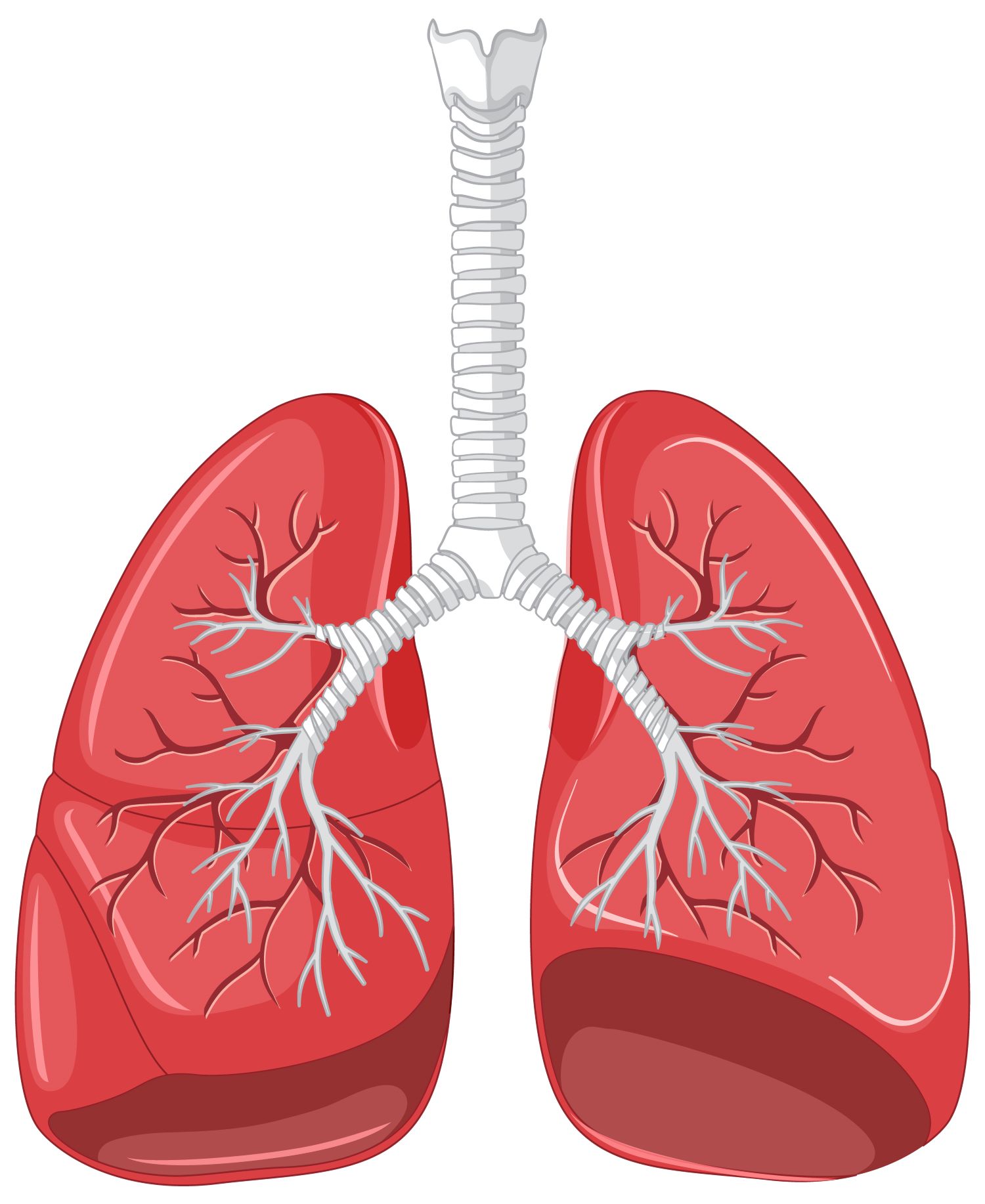Respiratory Diseases

Respiratory diseases encompass a range of conditions affecting the lungs and airways, including asthma, bronchitis, chronic obstructive pulmonary disease (COPD), and respiratory infections like pneumonia. These conditions can cause symptoms like coughing, wheezing, shortness of breath, and chest tightness, significantly impacting the quality of life.
In Ayurveda, respiratory diseases are primarily associated with an imbalance in the Kapha dosha, which governs mucus production and the respiratory system. Excess Kapha leads to mucus accumulation, congestion, and obstruction of the airways. Vata dosha imbalance can also play a role by causing dryness and irritation in the respiratory tract. Ayurvedic treatments focus on balancing these doshas, clearing mucus, reducing inflammation, and strengthening the respiratory system.
Ayurvedic Treatments for Respiratory Diseases:
Herbal Remedies:
- Tulsi (Holy Basil): Tulsi is renowned for its anti-inflammatory, antimicrobial, and bronchodilator properties, making it effective in treating respiratory conditions like asthma and bronchitis.
- Vasa (Adhatoda vasica): This herb helps in clearing mucus, reducing cough, and soothing the respiratory tract, making it beneficial for treating bronchitis and asthma.
- Pippali (Long Pepper): Pippali acts as an expectorant and helps in clearing mucus, improving lung function, and reducing symptoms of respiratory diseases.
- Licorice (Yashtimadhu): Licorice soothes the respiratory tract, reduces inflammation, and helps in managing cough and irritation in conditions like bronchitis.
Panchakarma Therapies:
- Nasya (Nasal Administration): Nasya involves the administration of medicated oils or herbal powders through the nose, helping to clear nasal passages, reduce congestion, and balance Kapha dosha.
- Swedana (Sudation Therapy): Steam therapies using herbal decoctions can help to loosen mucus, relieve congestion, and ease breathing difficulties.
- Vamana (Therapeutic Vomiting): In cases of severe Kapha imbalance, Vamana therapy may be used to expel excess mucus from the respiratory system, helping to clear the airways.
Dietary and Lifestyle Modifications:
- Diet: A Kapha-pacifying diet is recommended, focusing on light, warm, and easily digestible foods. Avoid cold, heavy, and oily foods that can increase mucus production. Incorporate warming spices like ginger, black pepper, and turmeric to improve digestion and reduce congestion.
- Hydration: Drink warm fluids such as herbal teas and soups to help thin mucus and soothe the respiratory tract.
- Avoid Cold and Damp Environments: Exposure to cold and damp conditions can aggravate Kapha and worsen respiratory symptoms. Keep warm and avoid exposure to cold air.
Yoga and Breathing Exercises:
- Pranayama: Breathing exercises such as Anulom Vilom (Alternate Nostril Breathing), Bhastrika (Bellows Breath), and Kapalabhati (Skull Shining Breath) help to clear the respiratory passages, improve lung capacity, and balance Kapha and Vata doshas.
- Yoga Asanas: Poses like Bhujangasana (Cobra Pose), Matsyasana (Fish Pose), and Setu Bandhasana (Bridge Pose) can help in opening the chest, improving lung function, and easing breathing difficulties.
Conclusion: Ayurveda provides a holistic approach to managing respiratory diseases by focusing on balancing Kapha and Vata doshas, clearing mucus, reducing inflammation, and strengthening the respiratory system. Through a combination of herbal remedies, Panchakarma therapies, dietary adjustments, and lifestyle modifications, Ayurveda aims to alleviate symptoms, prevent complications, and improve overall respiratory health. Consulting a qualified Ayurvedic practitioner is essential for creating a personalized treatment plan tailored to individual needs and specific respiratory conditions.
Respiratory Diseases
Chronic Cough
A Chronic Cough is a persistent cough that lasts for eight weeks or longer in adults, or four weeks in children. It can be caused by various underlying conditions such as asthma, gastroesophageal reflux disease (GERD), chronic bronchitis, or postnasal drip.
Asthma
Asthma is a chronic respiratory condition characterized by inflammation and narrowing of the airways, leading to episodes of wheezing, shortness of breath, chest tightness, and coughing. These symptoms can be triggered by allergens, exercise, cold air, or respiratory infections.
Allergies
Respiratory allergies occur when the immune system overreacts to inhaled substances like pollen, dust mites, mold spores, or pet dander. This reaction leads to symptoms such as sneezing, runny or stuffy nose, itchy eyes, and coughing. In some cases, allergies can trigger or worsen asthma symptoms.
Sinusitis
Sinusitis is an inflammation, or swelling, of the tissue lining your sinuses. Sinuses are structures inside your face that are normally filled with air.
Allergic Rhinitis
Allergic rhinitis (AR) is an atopic disease presenting with symptoms of sneezing, nasal congestion, clear rhinorrhea, and nasal pruritis.
How It Works
Treat your body with the care of nature
Take the first step towards holistic well-being. Schedule a consultation with our experienced Ayurvedic specialists who will create a customized treatment plan tailored to your unique health needs. At BioResurge Wellness, we are committed to helping you achieve balance and vitality.
011-45020469

